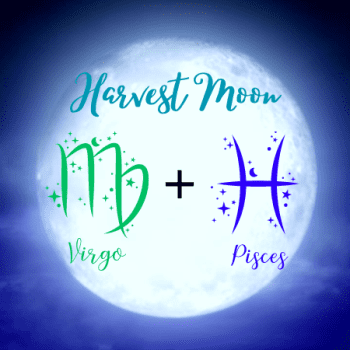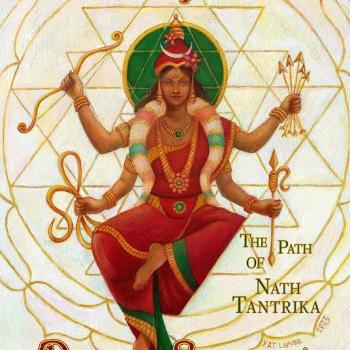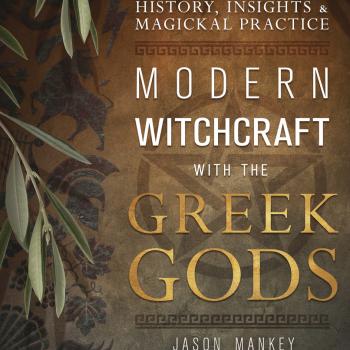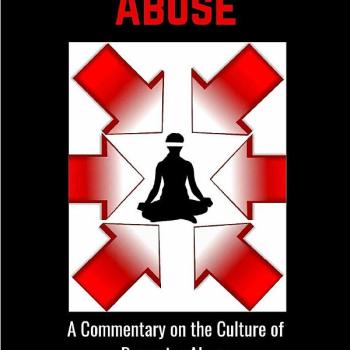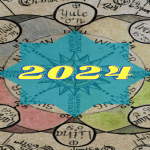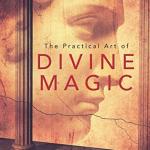Review of The Practical Art of Divine Magic: Contemporary & Ancient Techniques of Theurgy by Patrick Dunn
The Practical Art of Divine Magic does not claim to slavishly recreate the practices of ancient theurgy, but rather to make them relevant for contemporary practitioners while remaining true to the original principles. The text uses a postmodern approach to “explore and revitalize the spiritual techniques of diverse times and places all under the loose heading of ‘theurgy’. … This book does not attempt to reconstruct the religious practices of Late Antiquity or ancient Pagan religions. Any attempt to revitalize an ancient way of life that ignores the cultural differences between now and antiquity cannot, in my opinion, succeed. We do not live in ancient Greece or ancient Rome. We don’t even live in places like ancient Greece or Rome. Ancient Greece would be, to modern American minds—or modern European minds, for that matter—an alien culture, with institutions we would not recognize and practices like slavery we could not support. We can admire their accomplishments, learn from their teachings, even revitalize some of their practices …
The attitude with which I approach this book, then, is neither eclectic nor reconstructionist. It is postmodern. I am an unusual breed of postmodernist in that I think there is an ultimate truth that is not culturally constructed.”

The text presents a system derived from primary source texts and Dr Dunn’s own practical experiments:
“That’s why at some points in this book I delve into original sources and put on the hat of a scholar, while at other points I gleefully make something up that works. My promise to you is that I will cite my scholarship and identify those things I have made up to fill the gaps. When I guess at what an ancient source meant, I’ll give my reasoning for that guess and other possibilities. When I make a claim, I will try to back it up or explain why I cannot.”
Despite Dr Dunn’s undeniable expertise, his modesty comes through repeatedly. I am particularly enamored by his advice to work with his system and then tailor it to your own needs. In fact, this advice should be applied to every practical text on magic:
“I am no authority. The only authority is your own experience with the gods: not your wishes and fantasies, but your genuine experiences. I hope that by engaging with the exercises in this book, you will have enough experience of the divine that you can edit and modify and add to these practices as needed in order to continue your theurgy. Always, throughout this book, my watchword is practicality: how can this be used, now, today, by us?”
While theurgy is a term enjoying fairly extensive usage, coming from two Greek words: theos, meaning “god”; and ergon, meaning “work,” Dr Dunn focuses on something lesser known, namely of achieving the highest perspective, that of henosis, “oneness with the ground of existence itself … it shares some resemblances—and some significant differences—with nirvana in Buddhism or moksha in Hinduism. It is a kind of universal liberation, an experience of perfect understanding. …
Henosis is union of perspective with the highest reality in the universe, the one thing from which everything else proceeds. It’s hard for us to understand what that oneness might mean. …
Henosis will, perhaps only temporarily at first but later with more and more reliability, solve your problems. Sometimes those solutions will be miraculous, and sometimes you’ll just see your problems from a perspective that makes them irrelevant. It won’t necessarily cure your obesity—but it might help dissolve the boundaries that prevent you from exercising. It might not balance your checkbook—but it
might help you see money differently. And it might not find you one true love—but it can help you learn how to love and be loved. Henosis isn’t a magic bullet, but it is magic. Henosis—even just chasing henosis—will make you a better person, more competent at life, and probably happier.”
While Dr Dunn acknowledges that for farmers and hunters animal sacrifice is part and parcel of life, he recommends bloodless sacrifices for most others:
“It is not a cop-out to avoid animal sacrifice. Theurgists of Late Antiquity were already arguing against animal sacrifice. Porphyry wrote ‘On Abstinence from Animal Food’, a work that makes the argument that animal sacrifices were a recent invention and that the most ancient sacrifices were of grain, fruit, and bread. Consequently, these sacrifices pleased the gods more, and were to be preferred. Porphyry also advocated for vegetarianism and laid out a thorough philosophical case against the teachings of Stoics and Epicureans in that regard.
The bloodless sacrifice practiced by the ancient Greeks and Romans has much in common with similar practices throughout the area settled by the Indo-European people in about the fourth millennium bce. …”
A section titled The Genius and the Paredros will be of interest to ceremonial magicians, many of whom are familiar with the phrase “Knowledge and Conversation of the Holy Guardian Angel.” This can be traced back to “Aleister Crowley, who himself got it from a fifteenth-century grimoire called the Book of the Sacred Magic of Abramelin the Mage.”
Regarding the ancient origins of the Holy Guardian Angel / Agathos Daimon / Genius:
“Socrates described the experience of having ‘something divine’, a ‘daimonion’, watching over him and giving him signs when he was about to do something wrong. … Socrates believed that some divine force existed to warn him away from evil. The idea that daimones existed and that each human had a good spirit, an Agathos Daimon, appears to stretch back very far indeed in Greek religion. The role of the daimon is as an intermediary to the gods, and it is the root of our modern concept of the guardian angel.
While the Greeks listened quietly to their Agathos Daimon and the Abramelin operation plunged the magician into a regimen of intensive prayer, the Romans had made the concept of a guardian spirit part of their day-to-day religion. This spirit, called a genius, is the source of our word for a person who is exceptionally intelligent or creative. Romans believed that everyone had a genius, given to them at the moment of birth. … The Roman genius was not limited to people: every locale had its own genius, and particularly sacred or interesting places had especially powerful ones.”
Regarding the actual function of the Holy Guardian Angel / Agathos Daimon / Genius:
“What is the role of this angel, daimon, or genius in the practice of theurgy? As a personal god, it is a patron for our spiritual development. Each person gets his or her own, and each one is intimately concerned with that person. As a guardian of place, it is a way of grounding spirituality to location. It acts as a conduit between the lower and upper world, between the nous and the world of matter. In sum, the genius acts as a translator between worlds, a personal daimon. …
But most of the worship of the genius was a personal religion conducted in the home and not in the street. Because everyone learned this worship at home from word of mouth, we have relatively few inscriptions or written accounts regarding this tradition.”
While the Agathos Daimon was represented as a snake, the representation of the Genius could vary:
“As a being worthy of worship, the image of the genius appears in various murals and statues in the homes of ordinary Romans. The genius of a place is often depicted as a serpent, while the genius of a person is usually a human figure without wings, and not hovering over a ruddy-cheeked child as we tend to think of it. Instead, the figure is usually holding a cornucopia and offering one hand as if to make a gift or offer a sacrifice. Often, genii are depicted pouring libations, an action that underlines their intermediate nature, who are offering worship to the gods on behalf of the person they patronize.”
As for making contact with the Holy Guardian Angel / Agathos Daimon / Genius:
“I am of the opinion that the cultivation of the genius should be as simple as possible (not to imply that it is, necessarily, also easy), leaving more complex and arduous rituals to more elaborate tasks. One of the things that makes contacting your genius easy is that your genius wants to be in contact with you. You’re not pulling the whole load here: there’s an intelligence meeting you halfway. What makes it harder than contacting a known god or daimon is that you have no name, no form, and no symbols with which to make a connection.”
Dr Dunn presents a short ritual for making contact with the Holy Guardian Angel / Agathos Daimon / Genius. Readers have the option of trying it either instead of, or in addition to, the better known Abramelin Operation and Crowley’s Liber Samekh.
The Greek Magical Papyri have several rituals for summoning and binding a Paredros, or magical assistant. Dr Dunn relates this to the “familiar spirit” or “familiar” known to us from “the witch trials of the fifteenth through eighteenth centuries often included ‘testimony’ of witches having particular animal or spirit helpers.” He sees the Paredros as being useful for thaumaturgy, or practical magic, whereas the Holy Guardian Angel / Agathos Daimon / Genius is better suited for theurgy. He presents an adaptation of one of these rituals.
There is so much to keep the most ardent seeker busy for weeks in Dr Dunn’s text. I have focused on those aspects which jumped out at me in this review, but there is so much more. Because he cites his references, it’s a simple matter to see the source material he’s consulting, so readers can modify it further to their own taste, or return to the original version. I personally like his exclusion of animal cruelty in some of the spells taken from the Greek Magical Papyri.
Tony Mierzwicki
Author of Hellenismos: Practicing Greek Polytheism Today and Graeco-Egyptian Magick: Everyday Empowerment.
https://www.amazon.com/Hellenismos-Practicing-Greek-Polytheism-Today/dp/0738725935
https://www.amazon.com/gp/product/1905713037/ref=dbs_a_def_rwt_bibl_vppi_i1





